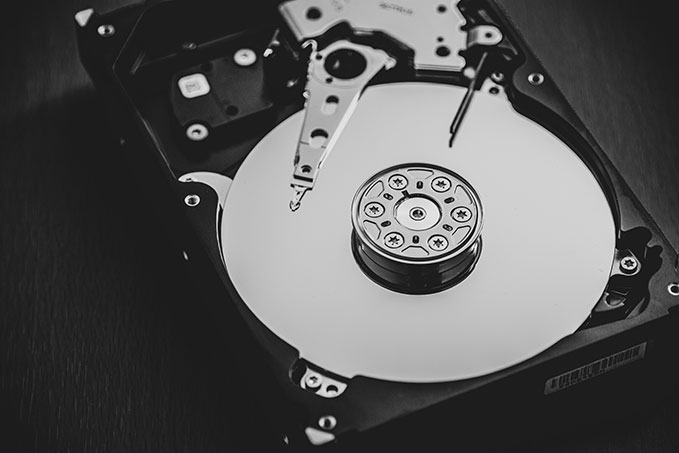Necessary Cyber Security Practices for Effective Data Destruction Approaches
Necessary Cyber Security Practices for Effective Data Destruction Approaches
Blog Article
The Vital Nature of Information Devastation in Upholding Computer System Safety And Security Solutions and Protecting Versus Unauthorized Access
In an era where data violations and identification theft are significantly widespread, the importance of reliable information devastation can not be overstated. Organizations should identify that the failing to properly take care of sensitive information positions not only legal and monetary dangers however likewise a potential erosion of client trust fund. Different approaches, from data cleaning to physical destruction, serve as critical safeguards against unapproved access. Understanding the implications of information damage techniques and conformity with policies raises important concerns concerning the competence of present approaches and their long-lasting viability in the face of advancing hazards.
Significance of Data Damage
In a progressively digital world, the relevance of information damage can not be overemphasized. As companies amass large quantities of delicate information, the potential repercussions of stopping working to effectively handle and get rid of of that data become progressively serious. Information violations, identity theft, and corporate espionage position considerable risks, emphasizing the need of effective data devastation practices.

Furthermore, as technology advances, so too do the techniques by which destructive stars seek to manipulate delicate details. Organizations needs to remain aggressive and attentive in their data destruction approaches to guard against these developing risks. By prioritizing information devastation, firms not only secure their possessions yet also foster trust among stakeholders and customers, demonstrating a commitment to liable information monitoring and safety and security techniques.
Methods of Effective Information Destruction
To ensure the total and irreversible damage of delicate information, organizations can employ a variety of reliable approaches customized to their specific demands. One of one of the most usual techniques is information cleaning, which entails utilizing specialized software program to overwrite existing data several times, making recuperation essentially impossible. This is specifically valuable for solid-state drives and difficult drives, where standard deletion methods are poor.
One more efficient strategy is degaussing, which utilizes strong magnetic fields to interfere with the magnetic domain names on storage space media, rendering the data irretrievable. This method is particularly fit for magnetic storage space gadgets, such as disk drive and tough disks.
Physical devastation is additionally a sensible option, entailing the shredding, squashing, or incineration of storage gadgets. This method guarantees that data can not be recouped, making it excellent for organizations handling highly delicate information.

Conformity With Information Defense Regulations
Organizations should not just concentrate on reliable data damage methods yet likewise make certain conformity with data defense laws that regulate how sensitive info is managed and dealt with. Abiding by these laws is vital for guarding individual information and view publisher site preserving customer count on. Rules such as the General Data Security Law (GDPR) in the European Union and the Medical Insurance Portability and Accountability Act (HIPAA) in the United States enforce strict guidelines on information management, that include requirements for the safe disposal of sensitive info.
To attain conformity, companies should implement comprehensive data damage policies that line up with these lawful frameworks. This consists of determining data that requires devastation, establishing protocols for protected methodsâEUR" such as shredding physical media or using software that fulfills sector standards for data wipingâEUR" and keeping comprehensive records of damage tasks. Normal audits must be performed to make certain adherence to these policies and to determine any kind of prospective areas for improvement.
Failing to adhere to information security guidelines can result in considerable legal ramifications, including substantial fines and damage to a company's online reputation. Therefore, incorporating conformity into data destruction practices is not only a legal obligation yet additionally a crucial part of a durable info safety and security strategy.
Repercussions of Poor Data Handling
Poor data handling can lead to serious consequences that expand past prompt functional setbacks. Organizations might face significant financial losses due to information breaches, which frequently lead to pricey removal efforts, legal fees, and regulative penalties. These economic effects can prevent and stress sources development, ultimately influencing an organization's lower line.
Additionally, inadequate information handling can badly harm a company's online reputation. Companions, consumers, and stakeholders may shed count on an entity that falls short to safeguard delicate info, causing reduced consumer commitment and potential loss of organization possibilities. This disintegration of trust can take years to reconstruct, if it can be brought back at all.
Furthermore, companies might encounter legal implications occurring from non-compliance with information security guidelines. Such infractions might lead to investigations and visit this page charges, worsening the monetary burden and additional tarnishing the company's photo.
In the world of cybersecurity, poor data administration methods can produce susceptabilities that make systems a lot more vulnerable to unapproved gain access to and cyberattacks. Inevitably, these consequences highlight the important importance of executing durable information handling procedures to secure delicate information and keep organizational integrity.
Finest Practices for Secure Information Disposal


Firstly, information should be identified according to its sensitivity. Delicate details calls for a lot more extensive disposal techniques, such as shredding physical files and utilizing innovative software program for electronic information cleaning. Using qualified information destruction services makes certain compliance with sector guidelines and criteria.
Secondly, organizations must implement an information disposal policy that mandates routine audits. This plan must outline the procedures for information retention and destruction, making sure that obsolete information is thrown away promptly and firmly. Training staff more members on these protocols is necessary to cultivating a society of safety awareness.
Lastly, preserving thorough documents of disposed data enhances responsibility and supplies a clear audit route. This documents must consist of the kind of information ruined, the technique made use of, and the date of disposal.
Verdict
Taking on durable methods such as information wiping, degaussing, and physical destruction, along with compliance with laws like GDPR and HIPAA, is necessary for securing sensitive details. Overlooking correct data disposal techniques can lead to serious consequences, consisting of information breaches and lawful repercussions.
In a period where data breaches and identification theft are significantly widespread, the relevance of reliable data devastation can not be overstated. data destruction. Data violations, identity burglary, and corporate espionage position significant dangers, underscoring the need of effective information destruction practices
Compliance with guidelines such as GDPR and HIPAA requireds that companies implement stringent data defense measures, including the safe and secure damage of data at the end of its lifecycle.
By focusing on information damage, firms not just secure their properties yet likewise foster depend on among stakeholders and clients, demonstrating a commitment to responsible data management and protection practices.
Organizations need to not only concentrate on reliable data destruction approaches but likewise make certain compliance with data protection policies that govern how delicate details is taken care of and disposed of.
Report this page